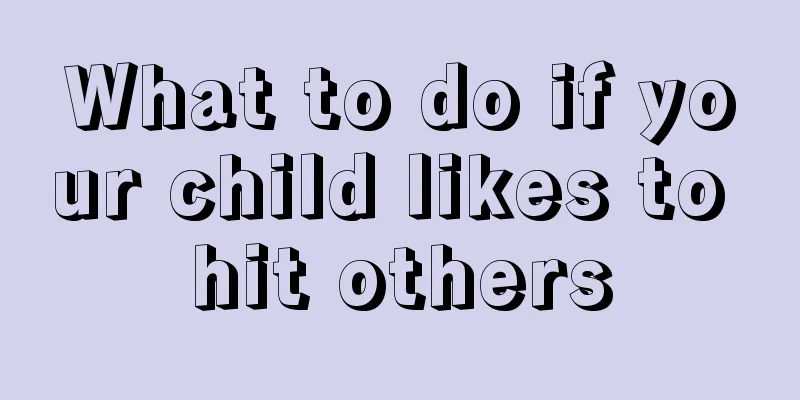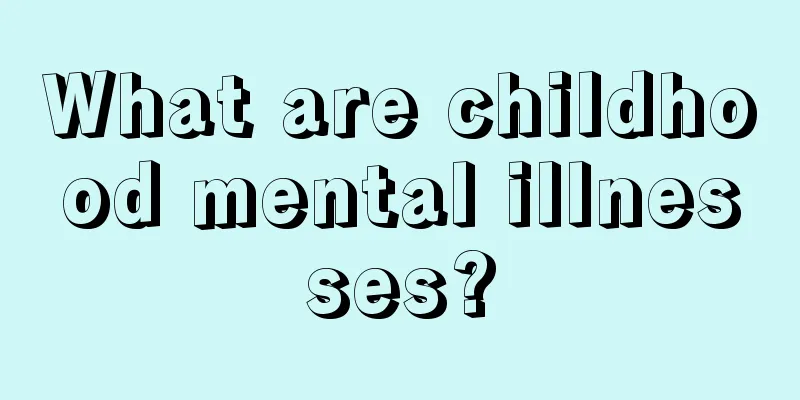Why is my baby’s hair yellow? Tell you the most comprehensive reason

|
Some parents find that their children's hair is obviously yellowish, but they don't know what caused it. In fact, there are many reasons for this situation. It may be inherited from the parents, it may be a sign of malnutrition in the child, or it may be a sign of illness in the child. 1. Genetic factors. Many children have the same hair color as their parents when they were young. As they grow older, their hair color will gradually turn darker. 2. Nutritional factors. The color of a child's hair is related to the protein, vitamins, and trace elements he consumes. For example, children who are iron or zinc deficient will have yellow, dull, and sparse hair. Children who lack protein will also have poor hair quality. Children grow and develop very rapidly in their early years, and the nutrition they consume often cannot meet the needs of rapid growth, especially for tall and fat children. Therefore, for such children, it is necessary to pay attention to the nutrients they consume to ensure their further growth needs. As the child's nutritional needs are met, his hair will gradually become darker and brighter. 3. Changes in children's hair are closely related to diseases and their nutritional status. Generally speaking, malnutrition of the fetus in the womb can cause the baby's hair to be sparse, thin, soft, and grow in clumps. Babies with rickets often have sparse hair near the pillow when they are 7 to 8 months old, and they also have symptoms such as excessive sweating and itchy scalp. Infants and young children suffering from malnutrition generally have hair that is dull, dry, and easy to fall out. They also have slow nail growth, dry and cold skin, or goose bumps. There is also a genetic disease caused by inbreeding - phenylacetonidia. The hair of the affected child becomes yellower as it grows longer, and his complexion becomes delicate and pale, his urine smells like rat urine, and his intellectual development is not fully developed. |
<<: How to treat allergic conjunctivitis in children
>>: How to make baby's hair grow thicker? These eight points must be followed!
Recommend
What to do if your child has a stuffy nose, cough and phlegm
We all know that children's bodies are very f...
Can babies with enteritis eat breast milk?
The baby is relatively young and has a weak stoma...
Can I wash my baby's hair when he has a fever?
When the baby has a fever, parents will panic and...
Children have recurrent oral ulcers
Parents should pay attention to children who have...
What are the treatments for children with cerebral palsy?
Some children's diseases are congenital, whil...
What are the symptoms of zinc deficiency in children?
Do you know what effects zinc deficiency can have...
Can children grow tall if their parents are short?
Tall people, whether male or female, tend to be m...
What to do if your baby has a fever and blushes
Children grow and develop very fast, and their bo...
What are the symptoms of a child’s midnight cough?
Everyone who has been a parent knows that childre...
Is it okay for babies to take a bath every day?
For newborn babies, they are inferior to adults i...
How to conduct cognitive training for children with autism?
Autism is a common disease nowadays. Children wit...
What to do if your child is often angry
There are many reasons why children are often ang...
Why does my child startle when sleeping at night?
Sleeping is particularly important for children b...
Is it necessary to get the hand, foot and mouth vaccine?
Hand, foot and mouth disease is a common disease ...
How to treat children’s indigestion? Three essential aspects
Whether the child's digestion is good or not ...









